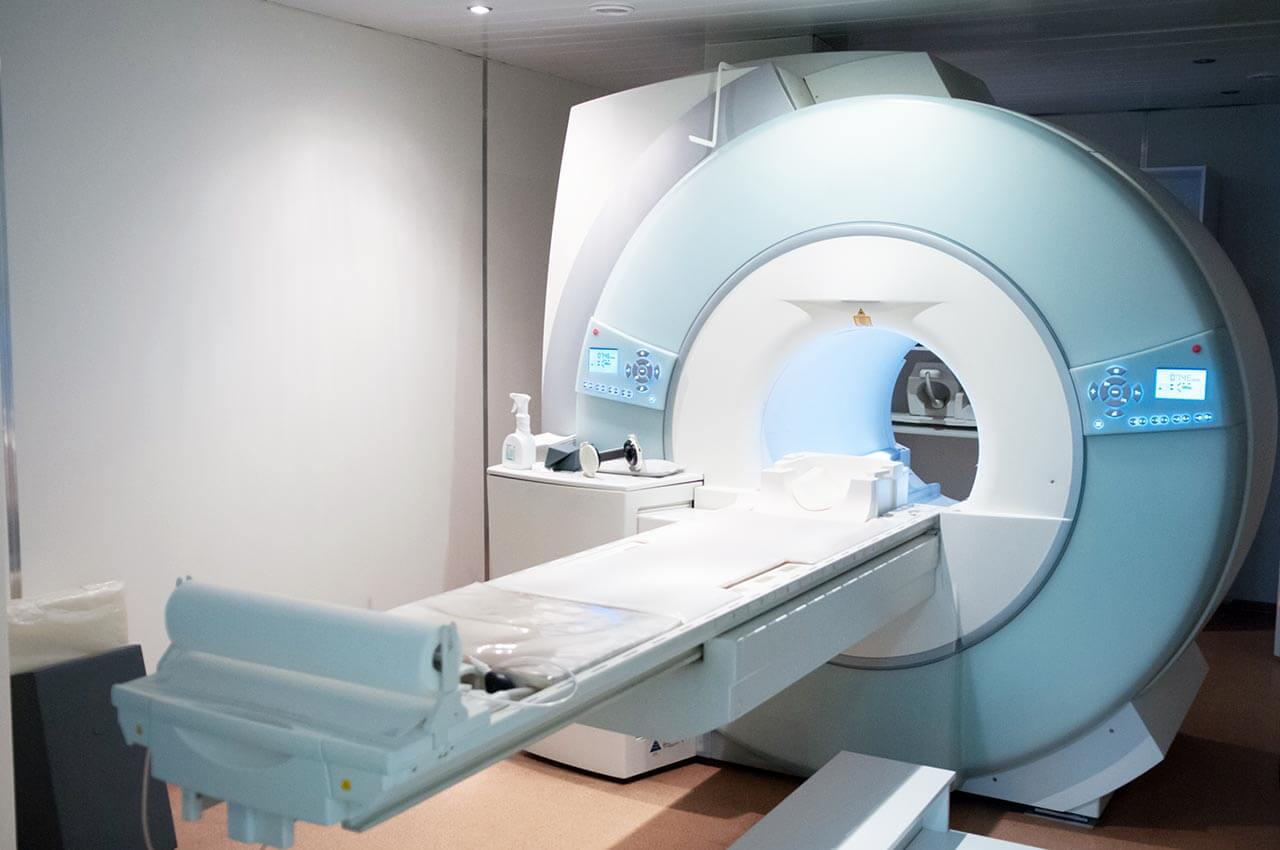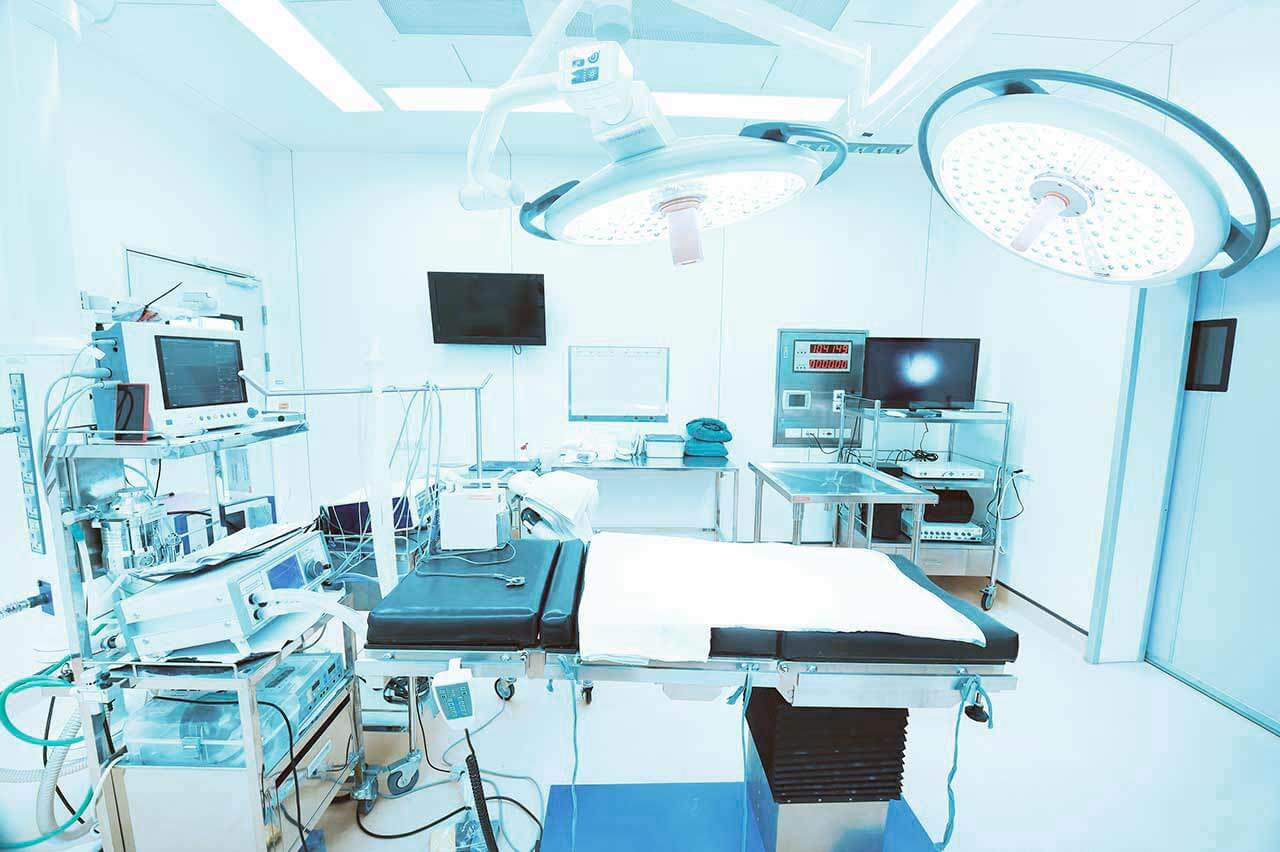
The program includes:
- Initial presentation in the clinic
- clinical history taking
- review of medical records
- physical examination
- neurological examination
- laboratory tests:
- complete blood count
- biochemical blood test
- inflammation markers (CRP, ESR)
- blood coagulation analysis (aPTT, PT, INR)
- hormone test (TSH)
- HIV antibodies
- Wassermann test
- myelography
- CT/ MRI (if indicated clinically,
additional cost is 650/1200 €) - cerebrospinal fluid examination
(if indicated clinically, additional cost is 1800 €) - muscle biopsy with histological study
(if indicated clinically, additional cost is 2000 €) - molecular genetic analysis (if indicated clinically)
- nursing services
- treatment by chief physician and all leading experts
- explanation of future recommendations
Required documents
- Medical records
- Brain MRI (if available)
Service
You may also book:
 BookingHealth Price from:
BookingHealth Price from:
About the department
According to the Focus magazine, the Department of Neurology at the University Hospital Tuebingen is included in the ranking of the top departments in Germany for the treatment of multiple sclerosis and Parkinson's disease!
The department offers the full range of services in the diagnostics and treatment of diseases of the nervous system. Special attention is paid to the treatment of epilepsy, neurodegenerative diseases, neurovascular pathologies, oncological processes of the nervous system and cognitive disorders. To make an accurate diagnosis, the department has all modern diagnostic capabilities, for example, Doppler scanning, electroencephalography, electromyography, electronystagmography and other highly specialized studies. The department is headed by Prof. Dr. med. Thomas Gasser.
The department specializes in the diagnostics and treatment of the following neurological pathologies:
- General neurological disorders
- Cerebellar and afferent ataxia
- Huntington's disease
- Dystonia
- Epilepsy, including syncopes and pseudoepileptic seizures
- Frontotemporal dementia and other forms of dementia
- Headaches and neuropathic pain (including migraine, tension headache, cluster headache, trigeminal neuralgia, etc.)
- Leukodystrophy in adulthood
- Amyotrophic lateral sclerosis
- Neuromuscular diseases (for example, myopathy, myasthenia)
- Peripheral nerve injuries
- Inflammatory diseases of the central and peripheral nervous system (for example, multiple sclerosis)
- Benign and malignant tumors of the nervous system
- Neuropsychological diseases
- Polyneuropathies
- Conditions after strokes, as well as cerebrovascular diseases
- Dizziness
- Hereditary spastic paraparesis
- Other diseases of the central and peripheral nervous system
Curriculum vitae
Academic Degrees
- 1996 Habilitation, University of Munich.
- 1985 Doctor of Medicine, Medical School of the University of Freiburg.
Major Previous Appointments
- Since 2013, Coordinator of Clinical Studies, German Center for Neurodegenerative Diseases (DZNE) Tuebingen.
- Since 2010, Dean for Research, Faculty of Medicine, University of Tuebingen.
- Since 2008, Chairman of the Board of Directors, Center of Neurology, University of Tuebingen.
- Since 2002, Full Professor and Head of the Department of Neurology, University Hospital Tuebingen.
Activities in the Scientific Communities and Professional Memberships
- Since 2014, Coordinator of the Helmholtz Association’s Personalized Medicine Initiative for the German Center for Neurodegenerative Diseases.
- Since 2011, Chairman of the Scientific Advisory Board of the Joint Programming on Neurodegenerative Diseases, in particular Alzheimer’s disease.
- Since 2001, President, German Society for Neurogenetics.
Honors and Awards
- 2011 K. J. Zülch Award of the Max Planck Society.
- 2010 Dingebauer Award of the German Society of Neurology.
- 1998 Parkinson Research Award of the German Society of Neurology.
Photo of the doctor: (c) Universitätsklinikum Tübingen
About hospital
According to the prestigious medical publication Focus, the University Hospital Tuebingen ranks among the top five German hospitals!
The hospital was founded in 1805, therefore it is proud of its long history, unique experience, and outstanding achievements in the field of medical care, as well as research and teaching activities. Nowadays, it is one of the most advanced medical institutions, which provides a wide range of general and highly specialized medical services. The hospital combines the state-of-art medical technologies in the field of diagnostics and the very latest treatment methods of a wide range of diseases.
The hospital has 17 specialized departments, which cover almost all fields of modern medicine and contribute to the top-class medical service in Germany. It treats about 367,000 outpatients and 74,000 inpatients annually. This testifies to the high authority of the hospital at the national and international medical arena. This is the first German hospital, which confirmed the high quality of healthcare and the effectiveness of service with a KTQ certification (in 2009).
Photo: (с) depositphotos
Accommodation in hospital
Patients rooms
The patients of the University Hospital Tuebingen live in comfortable single and double rooms with an ensuite bathroom equipped with a shower and toilet. The beds in the patient rooms are equipped with orthopedic mattresses that promote good and full sleep. There is a TV in the room, and it is also possible to connect a smartphone or laptop to the Internet. In addition, there is enough space in the patient room to receive 2-3 guests without inconvenience for the second patient.
The enhanced-comfort rooms include a hairdryer, heated towel rail, a large mirror, a direct dial telephone, a flat-screen satellite TV, a writing desk, free Internet access, a mini-bar and a refrigerator.
Meals and Menus
The patients of the hospital are offered tasty and healthy three meals a day: breakfast, lunch and dinner. Breakfast is served as a buffet, while for lunch and dinner there is a choice of several menus. Also, if desired, the patient will be provided with an individual menu. There are several cafes and cafeterias on the territory of the hospital, where one can have a tasty meal or enjoy a cup of coffee, tea and dessert.
Further details
Standard rooms include:
Religion
Religious services are available upon request.
Accompanying person
During the inpatient program, an accompanying person can stay with you in a patient room or in a hotel of your choice.
Hotel
During the outpatient program, you can stay in a hotel of your choice. Our managers will help you choose the most suitable option for you.




